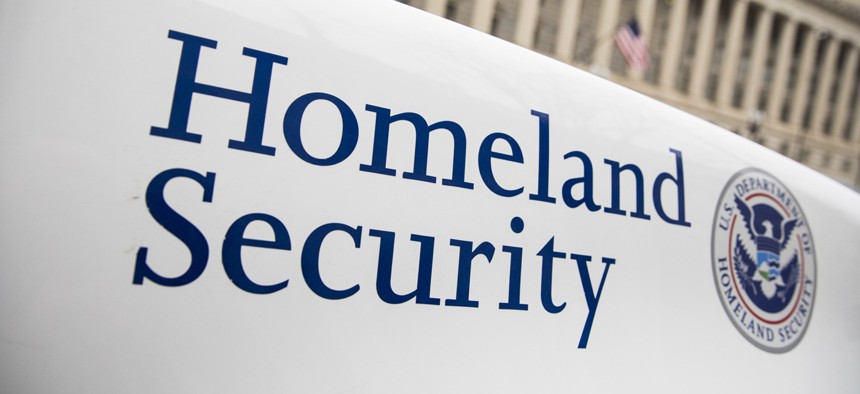DHS cancels S&T grants under a new mission focus for the directorate

Samuel Corum/Anadolu Agency/Getty Images
The Department of Homeland Security’s national security research subdivision, the Science and Technology Directorate, will stop current grants and refocus its mission priorities.
The Department of Homeland Security halted all funding to grants and cooperative agreements housed in its Science and Technology Directorate, part of a larger transformation effort to realign the directorate’s mission areas of focus, according to two sources familiar with the decision.
In a memo sent to S&T staff last week and obtained by Nextgov/FCW, titled “Termination of the Centers of Excellence,” DHS leadership called for cutting all S&T financial assistance. S&T’s Centers of Excellence program is a collaborative research effort composed of nine centers that pairs government resources with colleges and universities. The letter was signed by DHS Acting Undersecretary Julie Brewer and sent to DHS Secretary Kristi Noem.
As justification for terminating the COEs, the memo cited a risk of “potential misalignment with current strategic priorities” and conflict with new departmental guidance.
“The purpose of this memorandum is to request your approval to terminate all current and pending grants and cooperative agreements administered by the Science and Technology Directorate, including all Centers of Excellence cooperative agreements and any other S&T grants managed through the DHS grants and Financial Assistance Division,” the memo said.
That request for approval was granted, the two sources familiar told Nextgov/FCW.
The COE program focused on topics like agency operational efficiency, cross-boarder threat screenings, critical infrastructure resiliency and counterterrorism analysis and education.
Along with the COEs, other S&T programming — such as the Scientific Leadership Awards; social and behavioral science grants; and cooperative agreements with Minority Serving Institutions — were also terminated, the first person familiar confirmed. The total dollar amount of grant funding cut for the latter three programs comes at approximately $17.6 million.
While ongoing funding for select S&T programming has been halted, the Trump administration identified new national security priorities the directorate will focus on, according to a second memo obtained by Nextgov/FCW and dated March 4 that was also sent by Brewer.
The four priority mission areas outlined for S&T were listed as: Secure and Manage Air, Land, Maritime Border; Enforce U.S. Immigration Laws; Counter Transnational Criminal Organizations and Other Illicit Actors; and Expedite Lawful Trade and Travel.
The memo also established a second series of research priorities for S&T. The first is listed as Threat Characterization, Detection, and Mitigation, specifying four threat subgroups: chemical agents, biological agents, explosive materials and artificial intelligence.
The remaining secondary research priorities were Cybersecurity, Emergency Response and Public Safety, and Critical Infrastructure. The memo said that these mission areas align with several of President Donald Trump’s recent executive orders.
Some components of S&T’s original operations will remain. The memo noted that S&T should continue to partner with other DHS components; first responders; and state, local and tribal entities to aid in research and development efforts.
Following news of the halt in grant funding and programming, the first person familiar went on to say that S&T staff are anticipating receiving reduction-in-force notices.
“We're waiting this week to see how deep our cuts are going to be for personnel. And I expect at an organization that has approximately 500 feds, I think the low end of what we're going to lose is 50% — that’s speculation on my part,” they said.
Changes within S&T and DHS follow the large-scale reductions in force across the government ordered by the Trump administration with the intention of improving overall government efficiency. DHS in particular has seen several changes in its leadership team over the past few weeks.
DHS did not respond to a request for comment by the time of publication.


